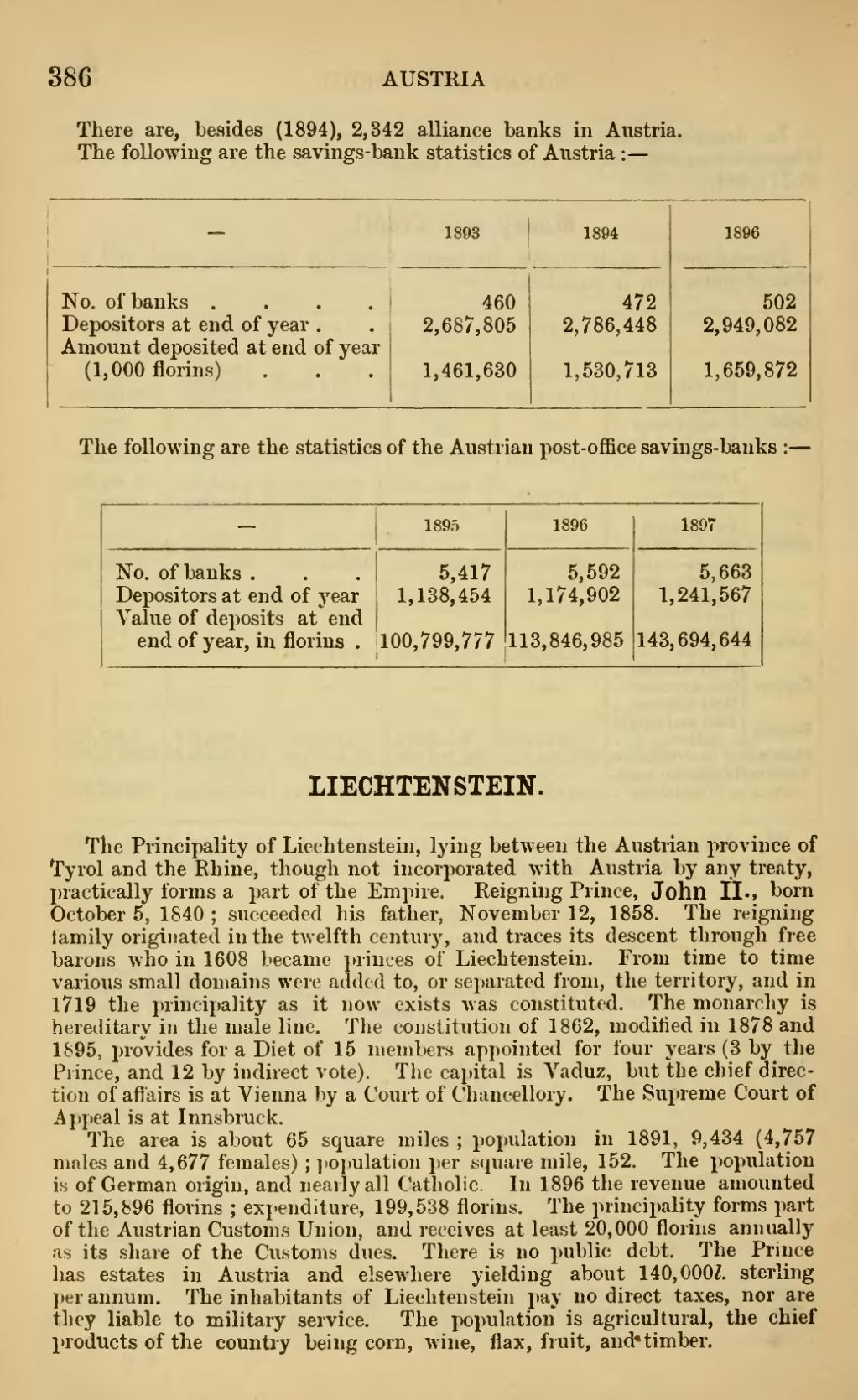886
AUSTRIA
There are, besides (1894), 2,342 alliance banks in Austria. The following are the savings-bank statistics of Austria : —
— 1893 ' 1894
1896
No. of banks .... Depositors at end of year . Amount deposited at end of year - (1,000 florins)
460 2,687,805
1,461,630
472
2,786,448
1,530,713
502 2,949,082
1,659,872
The following are the statistics of the Austrian post-office savings-banks : —
1895
1896
1897
No. of banks . Depositors at end of year Value of deposits at end end of year, in florins .
5,417 1,138,454
100,799,777
5,592 1,174,902
113,846,985
5,663 1,241,567
143,694,644
LIECHTENSTEIN.
The Principality of Liechtenstein, lying between the Austrian province of Tyrol and the Rhine, though not incorporated with Austria by any treaty, practically forms a part of the Empire. Reigning Prince, John II. , born October 5, 1840 ; succeeded his father, November 12, 1858. The reigning jamily originated in the twelfth century, and traces its descent through free baroijs who in 1608 became princes of Liechtenstein, From time to time various small domains were added to, or separated from, the territory, and in 1719 the principality as it now exists was constituted. The monarchy is hereditary in the male line. The constitution of 1862, modified in 1878 and 1895, provides for a Diet of 15 members appointed for four years (3 by the Prince, and 12 by indirect vote). The capital is Vaduz, but the chief direc- tion of afi'airs is at Vienna by a Court of Chancellory. The Supreme Court of Appeal is at Innsbrucic.
The area is about 65 square miles ; population in 1891, 9,434 (4,757 males and 4,677 females) ; iiopulation per square mile, 152. The population is of German origin, and nearly all Catholic. In 1896 the revenue amounted to 215,896 florins ; expenditure, 199,538 florins. The principality forms part of the Austrian Customs Union, and receives at least 20,000 florins annually as its share of the Customs dues. There is no public debt. The Prince has estates in Austria and elsewhere yielding about 140,000^. sterling per annum. The inhabitants of Liechtenstein pay no direct taxes, nor are they liable to military service. The population is agricultural, the chief products of the country being corn, wine, flax, fruit, and* timber.

